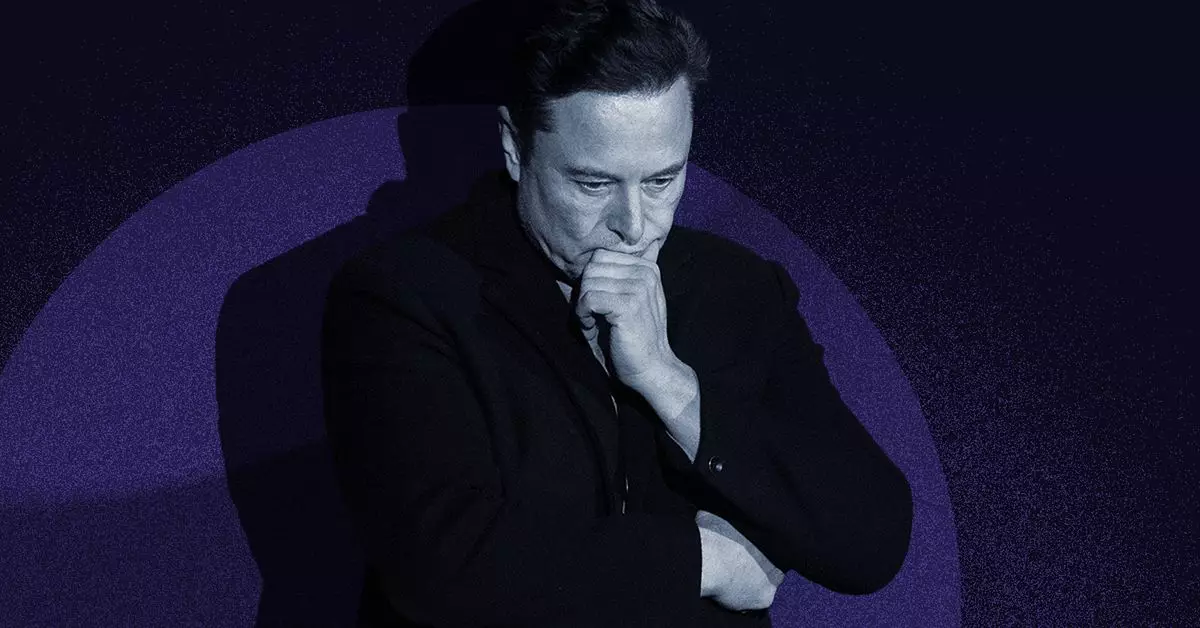In an era dominated by social media influence, few individuals exemplify the complexities of digital power as much as Elon Musk. His recent appointment as co-lead of the Ministry of Government Efficiency (DOGE), an entity that currently exists primarily in name, has sparked debates regarding the ethics of targeting government employees publicly. Amidst his vast social media reach, Musk’s approach has ignited discussions about the thin line between accountability and public harassment, particularly as he utilizes his platform on X to critique what he perceives as government bloat.
Musk’s latest actions revolve around highlighting specific individuals within government roles he considers unnecessary. In a notable incident, Musk shared a critique of Ashley Thomas, the Director of Climate Diversification at the US International Development Finance Corporation. By amplifying a post that dismissed her employment as a “fake job”, Musk engaged his audience of millions, leading to a torrent of memes and negative commentary directed toward Thomas and her professional integrity. This mechanism of leveraging social media as a means to tarnish reputations raises uncomfortable questions about accountability in the public sector—does public scrutiny inherently justify harassment?
The backlash that followed Musk’s post underscores a chilling effect within public service roles. As federal employees become targets of online harassment, the community is forced to confront a culture of fear seeded by influential figures. The American Federation of Government Employees has condemned this behavior, framing it as a tactic meant to intimidate and silence public workers. Such tactics can stifle innovation and deter talented individuals from pursuing public sector jobs, as the spotlight of social media can easily turn into a harsh lens of public criticism and ridicule.
While Musk champions this trolling as an exercise in free speech, the consequences are far-reaching. The direct harassment of individuals, masked as public debate, dilutes the essence of constructive criticism. Musk’s legacy in the technological realm, marked by innovation and disruption, appears at odds with the aggressive nature of his online interactions. His actions invite scrutiny on the ethical responsibilities that come with wielding influence in the age of digital communication, where a single post can escalate into widespread vitriol within moments.
Moreover, Musk’s pledge to operate much of the DOGE’s workings in public, with engagement driven by polls and public opinion, suggests a potential bias where certain voices are drowned out, while others are amplified. This could lead to an environment where bureaucratic roles are unjustly vilified based on whim and public sentiment rather than substantive discourse about their contributions.
Rethinking Accountability in Government
As the scrutiny of government roles intensifies, it’s crucial to rethink how accountability is manifested in our contemporary landscape. Critique can and should happen, but should it come at the cost of civility? The case of Ashley Thomas exemplifies a wider imbalance; while government roles warrant examination, the methods employed must promote constructive dialogue. This is particularly relevant as we navigate the modern digital age, where the boundaries of discourse and harassment frequently blur.
While Musk’s intentions may aim at unearthing inefficiencies within the government, the path he has chosen—layered with ridicule and personal attacks—could ultimately undermine productive reform. The discussion surrounding government efficiency must not devolve into a spectacle of personal outrage; rather, it should foster an environment where authentic and respectful conversations can take place, allowing for real change and progress.

